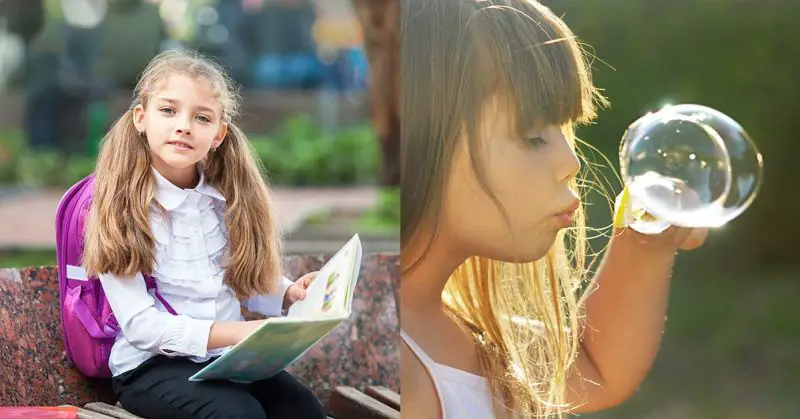Firstborns are usually very special. Typically, they’d spend about a year being the only child before more babies come along. This time spent with their parents helps them develop their intellect. You probably don’t know this, but here are some famous people who are firstborns: Beyonce, Hillary Clinton, and J.K Rowling. They all have one thing in common, which is that they are incredibly fascinating women.
Firstborns think at a higher level than their siblings
This isn’t just because they are older than them, age truly is just a number here. Even if they are less than a year apart, firstborns have a higher intellect. In 2017, a group of economists at the University of Edinburgh, Analysis Group, and the University of Sydney researched the topic. The study led by Marian Vidal-Fernandez, a senior economics lecturer at the University of Sydney, examined the database by the US Bureau of Labor Statistics.
Almost 5,000 children from pre-birth to 14 years were observed. They tested the children’s reading recognition and assessed their picture vocabulary every two years. The researchers also gathered information on other factors, including family background and economic conditions. [1]
Results of the study showed several things
First, children born after the first child tend to receive less quality parental cognitive stimulation. They also realized that a shift in the parent’s behavior starts while the babies have not even been born yet. For instance, the mothers’ were less likely to cut down on their alcohol intake and smoking, or even take their prenatal as seriously as they did the first time around. Not only that but also non-first-born babies tend to be breastfed less often.
According to Jee-Yeon K. Lehmann, co-author of the research, “First-time parents tend to want to do everything right and generally have a greater awareness of their interactions with and investments in the firstborn.” [2]
Ultimately, these factors may be part of the reason why the first children are often more adept in intellectual matters.
What does that mean?
The authors of the work said that “taken together, our findings suggest that a plausible explanation for the negative relation between birth order and educational achievement is a broad shift in parenting, especially with respect to parents’ ability to foster early cognitive development.” This might make you think that middle children are not loved as much as firstborns but that is wrong.
The authors stated clearly that, “Parental interaction aimed at ensuring appropriate emotional development does not diminish for younger siblings.” [3] It’s just that those shifts in pattern might be why birth orders make quite a difference.
One of the researchers, Dr. Ana Nuevo-Chiquero said, “Our results suggest that broad shifts in parental behavior are a plausible explanation for the observed birth order differences in education and labor market outcomes.”
Most people believe this is because first-time parents put in their best efforts with the first child as opposed to subsequent babies when they might not be as excited.
Do birth orders truly affect a child?
“A child’s position in the family impacts his personality, his behavior, his learning and ultimately his earning power. Most people have an intuitive knowledge that birth order somehow has an impact on development, but they underestimate how far-reaching and just how significant that impact really is,” said Michael Grose, author of Why First-Borns Rule the World and Last-Borns Want to Change It. [4]
According to child and family therapist Meri Wallace, there is a connection between birth order and personality traits. She said, “Some of it has to do with the way the parent relates to the child in his position, and some of it actually happens because of the spot position. Each position has unique challenges.”
Firstborns who are the “pack leaders” are usually overachievers, but they have an intense fear of failure and are unlikely to want to step out of their comfort zones. Middle kids are more laid back and tend to take every day as they come; however, they sometimes feel ignored. As for the youngest kids, they are free-spirited and charming but tend to feel like they can never live up to expectations or do something that hasn’t already been done by their siblings. [5]
Is the pressure a little too much?
First-time parents want so desperately to succeed at parenting that they pile a load of pressure on to the child. The fact that they are still trying to figure out the whole parenting thing can make things hard on both the parents and the child. Subsequent children also contribute to this; the first child usually feels left out when they come and sometimes tries to act like a second mom or dad to them and eventually becomes quite mature for his/her age. [6]
So, are you a first child? Can you relate to any of the experiences above? Also, if you’re a first-time parent, or about to be one, then maybe you should take it easy with the kid. Certainly, they will turn out just fine.
References:
- “First borns have mental edge, study shows.” The University Of Edinburgh. Admin. Accessed November 28, 2019.
- “Oldest children are the smartest, research shows.” CNBC. Kerri Anne Renzulli. Accessed November 28, 2019.
- “Why First-Born Children Are Smarter, According to Science.” INC. Justin Bariso. Accessed November 28, 2019.
- “18 celebrities who are the oldest sibling in their family.” Insider. Molly Mulshine. Accessed November 28, 2019.
- “Does Birth Order Affect Personality?” Scientific American. Corinna Hartmann, Sara Goudarzi. Accessed November 28, 2019.
- “Firstborn: A Chore in Itself Author Says the Oldest Child Feels Pressure to be the Best.” The Morning Call. Rosemary Jones. Accessed November 28, 2019.


